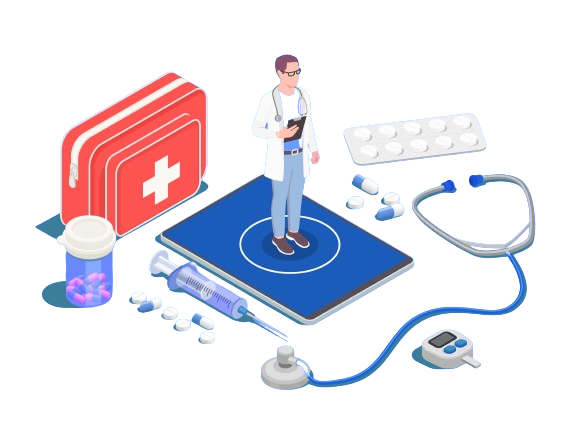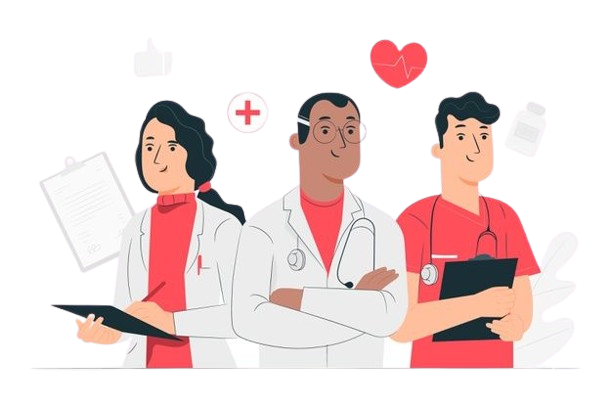In the rapidly evolving landscape of healthcare, the integration of technology has become a cornerstone for enhancing operational efficiency and elevating patient care standards. At the heart of this technological revolution lies the Hospital Information System (HIS), a comprehensive suite that seamlessly integrates various aspects of hospital operations, from patient management to administrative workflows. The adoption of HIS is not just a trend but a necessary evolution to meet the increasing demands of modern healthcare delivery, ensuring that patient care is both effective and efficient.
As Afzal Shaikh, a seasoned Hospital Administrator with over two decades of experience in the healthcare industry, I have witnessed firsthand the transformative impact of HIS on hospital operations. My journey in the healthcare sector, from managing hospital administrations to consulting on turnkey hospital projects, has provided me with a unique perspective on the critical role HIS plays in enhancing hospital performance. With a deep understanding of the intricacies involved in hospital management and a passion for leveraging technology to improve healthcare delivery, I have been at the forefront of implementing and advocating for advanced Hospital Information Systems across various healthcare facilities.
The significance of HIS in today's healthcare environment cannot be overstated. By integrating clinical, financial, and administrative functions, HIS provides a unified platform that streamlines operations, reduces manual errors, and improves the overall quality of patient care. This integration is crucial for hospitals aiming to achieve operational excellence while maintaining the highest standards of patient care.
In the digital age, Hospital data security in healthcare is paramount. Hospital Information Systems (HIS) are designed with robust security protocols to protect sensitive patient information against unauthorized access, breaches, and other cyber threats. ... By employing advanced encryption, user authentication, and access controls, HIS ensures that patient data remains confidential and secure, fostering trust between patients and healthcare providers.
One of the most significant advantages of implementing a Hospital Information System is the notable cost reduction it brings about. By automating routine tasks, reducing paperwork,... and minimizing manual errors, hospitals can operate more efficiently, leading to substantial cost savings. Moreover, HIS enhances revenue management in hospital through accurate billing and coding, ensuring that services are billed correctly and revenue leakage is minimized.
HIS plays a crucial role in providing a better patient experience. From streamlined appointment scheduling to reduced waiting times and more personalized care, HIS makes the patient journey smoother and more satisfactory.The ability to access... their health records and communicate with healthcare providers online further empowers patients, making their healthcare experience more engaging and transparent.
Effective pharmacy management and inventory management are critical components of hospital operations. HIS integrates these aspects, ensuring that medication and supplies are managed efficiently.... This integration helps in maintaining optimal stock levels, avoiding overstocking or stockouts, and ensuring that the right medications are available when needed, thereby enhancing patient safety.
HIS significantly contributes to better diagnosis and treatment outcomes in hospitals and clinics. By providing healthcare professionals with comprehensive and up-to-date patient... information and integrating seamlessly with diagnostic tools, HIS supports informed clinical decision-making, leading to more accurate diagnoses and effective treatment plans.
The efficiency of hospital operations is greatly enhanced by HIS, which automates and streamlines processes, reducing the time and effort required for various tasks. Easy patient data retrieval by... hospital software is another critical advantage, allowing healthcare providers to access patient information quickly and efficiently, which is essential for timely decision-making and care delivery.
By automating data entry and processing, HIS significantly reduces the risk of human error, leading to safer and more reliable patient care. Additionally, HIS offers advanced analytics for hospital capabilities, ...providing valuable insights into hospital operations, patient care trends, and performance metrics, which can inform strategic decisions and operational improvements.
HIS enhances patient care by ensuring that all relevant patient information is readily accessible to the care team, facilitating coordinated and comprehensive care. It also improves communication between hospital departments,... ensuring that information flows smoothly across different units, which is crucial for efficient operations and patient care continuity.
The billing process is streamlined with HIS, which automates and accurately captures all chargeable services, reducing billing errors and improving within HIS ensures that patient records are maintained in a digital format, making them revenue collection. The integration of ...Electronic Medical Records (EMR) in hospital easily accessible while ensuring accuracy and completeness.
HIS contributes to a faster turnaround in patient care processes, from admission to discharge, enhancing the overall efficiency of hospital services. This efficiency leads to improved services, ...with patients benefiting from quicker responses, reduced waiting times, and more efficient care delivery.
HIS provides centralized control over all aspects of hospital operations, offering a unified view and management platform for administrators. This centralization ensures consistent policies ... and procedures across the hospital, enhancing operational efficiency. Additionally, HIS facilitates easy data access, allowing authorized personnel to access the information they need from anywhere, which is crucial for timely and informed decision-making.
The advantages of Hospital Information Systems (HIS) are manifold, including enhanced efficiency, cost-effectiveness, and improved patient care. However, it's important to acknowledge the disadvantages such as the initial setup costs and the need for ongoing training. While the upfront investment in HIS can be significant, the long-term savings and operational improvements often outweigh these initial expenses. Continuous training is essential to keep staff updated on system features, ensuring the HIS is used to its full potential.

Patient Information Systems and Nursing Information Systems are integral components of HIS, offering specific advantages in patient management and nursing workflows. These systems provide real-time access to patient records, streamline communication among care teams, and support evidence-based nursing practices, enhancing the quality of patient care and nursing efficiency.

The purpose of HIS is to improve healthcare delivery by integrating and automating various hospital operations, from patient care to administrative tasks. The scope of HIS extends across all hospital departments, facilitating a seamless flow of information and coordinated care delivery, which is essential for operational excellence and enhanced patient outcomes.

In critical care settings, HIS provides vital support by enabling quick access to critical patient data, supporting rapid decision-making, and ensuring the delivery of timely care. The development of a robust HIS involves careful planning, customization to meet specific hospital needs, and integration with existing healthcare technologies, ensuring that the system enhances care delivery in high-stakes environments.


While Health Information Systems encompass a broad range of systems used across various healthcare settings, Hospital Information Systems are specifically designed to cater to the operational and clinical needs of hospitals. HIS focuses on integrating hospital-wide data and processes, whereas health information systems may be used more broadly in public health, clinics, and other healthcare facilities.
The future of HIS is promising, with advancements in AI, machine learning, and interoperability set to further revolutionize healthcare. These technologies will enhance predictive analytics, automate routine tasks, and improve the sharing of health information across different systems and settings, leading to more personalized and efficient healthcare delivery.


In the realm of Hospital Information Systems (HIS), our flagship product, Super Dr, stands out as a beacon of innovation and efficiency. Designed with the modern healthcare environment in mind, Super Dr encapsulates the essence of what a comprehensive HIS should be, aligning perfectly with the advantages discussed earlier.
Super Dr is meticulously engineered to meet the stringent standards of HIPAA and HL7, ensuring the utmost security and interoperability of patient data. This compliance not only safeguards patient information but also facilitates seamless communication between different healthcare systems, enhancing data exchange and integration.
With ABHA (Ayushman Bharat Health Account) enablement, Super Dr is at the forefront of supporting national health initiatives, ensuring that patients can securely access and share their health records across the healthcare ecosystem, promoting continuity of care and patient empowerment.
Super Dr is not just an HIS; it's a holistic solution that caters to every conceivable need of a hospital or clinic. From pharmacy management to inventory control, appointment scheduling, and billing, Super Dr's modules are designed to streamline operations, improve efficiency, and enhance patient care.
Recognizing the diverse technological proficiency of healthcare staff, Super Dr is built with user-friendliness at its core. Its intuitive interface ensures that doctors, nurses, and administrators can navigate and utilize the system effectively, minimizing the learning curve and maximizing productivity.
In the complex landscape of healthcare, medico-legal compliance is non-negotiable. Super Dr is designed with this in mind, incorporating features that ensure compliance with local and international medico-legal requirements, safeguarding healthcare providers and patients alike.
Super Dr is not just about meeting today's needs but also anticipating the future of hospital management systems. With features like AI-enabled workflows and templatised automated billing, Super Dr is poised to adapt to the evolving healthcare landscape, ensuring that healthcare providers remain at the cutting edge of technology.
Super Dr embodies the pinnacle of Hospital Information System innovation, offering unmatched advantages in terms of security, compliance, functionality, and user experience. As healthcare continues to evolve, Super Dr remains committed to providing solutions that not only meet the current demands of healthcare providers but also pave the way for a more efficient, secure, and patient-centric future.